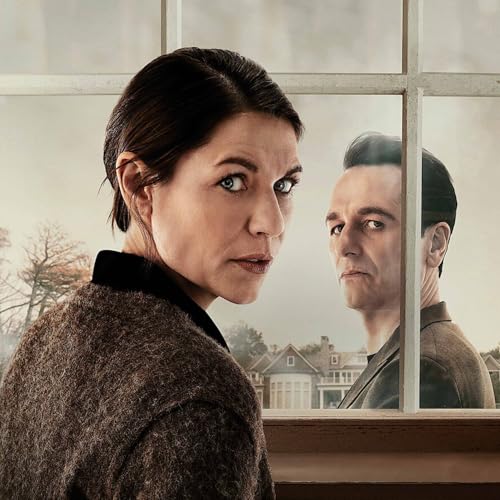
Theatre · The Creative Process: Acting, Directing, Writing & Behind the Scenes Conversations
カートのアイテムが多すぎます
カートに追加できませんでした。
ウィッシュリストに追加できませんでした。
ほしい物リストの削除に失敗しました。
ポッドキャストのフォローに失敗しました
ポッドキャストのフォロー解除に失敗しました
-
ナレーター:
概要
Theatre episodes of the popular The Creative Process podcast. We speak to performers and behind the scenes creatives. To listen to ALL arts & creativity episodes of “The Creative Process · Arts, Culture & Society”, you’ll find us on Apple: tinyurl.com/thecreativepod, Spotify: tinyurl.com/thecreativespotify, or wherever you get your podcasts!
Exploring the fascinating minds of creative people. Conversations with writers, artists & creative thinkers across the Arts & STEM. We discuss their life, work & artistic practice. Winners of Oscar, Emmy, Tony, Pulitzer, leaders & public figures share real experiences & offer valuable insights. Notable guests and participating organizations include: Doug Wright (Dramatists Guild of America), Neil Patrick Harris, Gavin James Creel (The Book of Mormon), John Benjamin Hickey, Joe Mantegna, David Auburn (Proof), Harris Yulin, Gregory Jbara, Tony Walton, Josh Gladstone (John Drew Theater at Guild Hall), Liev Schreiber, Yuval Sharon, Paulo Szot (Chicago), Kate Mueth (Neo-Political Cowgirls & League of Professional Theater Women), Robert Wilson, Jenny Schlenzka (Performance Space New York), Bay Street Theater, Tal Hever-Chybowski (Maison de la Culture Yiddish), Vallejo Gantner (Onassis Cultural Center), Daniel Fish, Georgina Kakoudaki (Athens and Epidaurus Festival, Epidaurus Lyceum), Avra Sidiropoulou (Persona Theatre Company), among others.
The interviews are hosted by founder and creative educator Mia Funk with the participation of students, universities, and collaborators from around the world. These conversations are also part of our traveling exhibition. www.creativeprocess.info
For The Creative Process podcasts from Seasons 1 2 3, visit: tinyurl.com/creativepod or creativeprocess.info/interviews-page-1, which has our complete directory of interviews, transcripts, artworks, and details about ways to get involved.
Copyright 2021, The Creative Process · This podcast launched in 2021. It also contains interviews previously recorded for The Creative Process podcast, exhibition and educational initiative.-
 12 分
12 分カートのアイテムが多すぎます
ご購入は五十タイトルがカートに入っている場合のみです。カートに追加できませんでした。
しばらく経ってから再度お試しください。ウィッシュリストに追加できませんでした。
しばらく経ってから再度お試しください。ほしい物リストの削除に失敗しました。
しばらく経ってから再度お試しください。ポッドキャストのフォローに失敗しました
ポッドキャストのフォロー解除に失敗しました
-
 2025/11/0946 分
2025/11/0946 分カートのアイテムが多すぎます
ご購入は五十タイトルがカートに入っている場合のみです。カートに追加できませんでした。
しばらく経ってから再度お試しください。ウィッシュリストに追加できませんでした。
しばらく経ってから再度お試しください。ほしい物リストの削除に失敗しました。
しばらく経ってから再度お試しください。ポッドキャストのフォローに失敗しました
ポッドキャストのフォロー解除に失敗しました
-

"Everything is Art. Everything is Politics." AI WEIWEI'S TURANDOT Dir. MAXIM DEREVIANKO - Highlights
2025/10/221分未満カートのアイテムが多すぎます
ご購入は五十タイトルがカートに入っている場合のみです。カートに追加できませんでした。
しばらく経ってから再度お試しください。ウィッシュリストに追加できませんでした。
しばらく経ってから再度お試しください。ほしい物リストの削除に失敗しました。
しばらく経ってから再度お試しください。ポッドキャストのフォローに失敗しました
ポッドキャストのフォロー解除に失敗しました


